Clairo escapes intimate bedroom beginnings on magnificent album No.3
Viral megahits released by teenagers rarely guarantee a sustained music career, but on Charm, this clever US pop artist continues her trend of crafting rich, complete albums.

Album reviews for week of July 12 2024:

POP
Charm
Clairo
Virgin Music Group
Claire Cottrill, aka Clairo, is a child of the internet. She has been writing and sharing moony, intimate bedroom pop songs since she was a teenager. Everything came together in 2017 when she was 19, with the release of her cutesy, lo-fi Pretty Girl, which was recorded on GarageBand, and its equally DIY music video. Shot on Photo Booth in her teenage bedroom, the video shows her barefaced, awkwardly dancing and lip-synching in a series of low-key outfits. The ramshackle nature of it struck a chord among Gen Z music fans — those who grew up on an internet diet of Rookie Mag while discovering the joys of Carly Simon and Carole King for the first time. Pretty Girl now has more than 100 million views, but a viral megahit rarely guarantees a sustained music career. Clairo was wise enough to avoid attempting to repeat the formula. Instead, she focused on crafting complete, rich albums that mostly diverged from popular music trends. Now 25, Clairo’s magnificent third album, Charm, shows she is no longer content living on the internet. This collection of tactile, lived-in, dimly lit songs sounds both of the past (without any unimaginative revivalist tricks) and firmly of the present.
Charm is the third time Clairo has worked with a different producer. Her first two records — the excellent Immunity (2019) and Sling (2021) — were made with former Vampire Weekend member Rostam Batmanglij and megastar producer Jack Antonoff (Taylor Swift, Lana Del Rey, Lorde), respectively. On Charm, she teams up with Leon Michels, a former member of Sharon Jones & The Dap-Kings (who were integral to Amy Winehouse’s final album, Back to Black), and a producer who has worked with Beyonce, Jay-Z and Norah Jones. As a result of this collaboration, Clairo has almost taken on the air of a lustful lounge act, albeit one who only seems to be serenading herself. These are woozy, laid-back, slightly erotic songs about crushing hard. On the lead single, Sexy to Someone, she sings against plinking piano and a swaggering bassline about wanting to be wanted: “Sexy to somebody, it would help me out / Oh, I need a reason to get out of the house / And it’s just a little thing I can’t live without.” It would sound petulant if it were not sung in whispers. On the slinky Juna, an album highlight, it’s as if she has found that person: “You make me wanna go buy a new dress,” she sings, “You make me wanna slip off a new dress.” As with most of Clairo’s output, Charm finds its heady tone early and doesn’t stray from it. The exception here is the dissonant and gorgeous Echo, which borrows generously from Broadcast and is one of her most compelling songs to date.
Geordie Gray
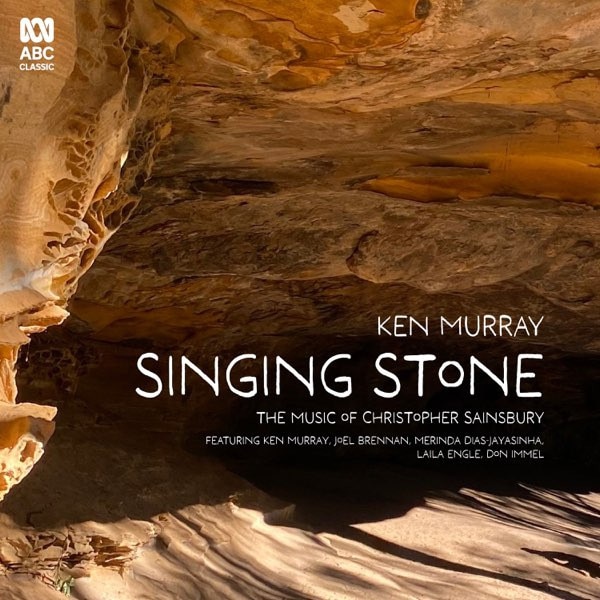
CLASSICAL GUITAR
Singing Stone: The Music of Christopher Sainsbury
Ken Murray
ABC Classic
Since legendary Australian-born guitarist John Williams departed the international stage some years ago — now 84, he is still recording on his own label — a new generation of Australian classical guitarists has risen in his wake: Tim Kain and his Canberra quartet, as well as the Grigoryan Brothers, among others. Now Ken Murray at the Melbourne University Conservatorium joins that pantheon. His most recent recording is dedicated to the music of Christopher Sainsbury, much admired composition teacher at ANU School of Music and a Dharug (Eora) man with mixed heritage. This infuses some deal of his music, gratefully so, for here is a composer who has created a really distinctive voice. Ken Murray’s stunning guitar virtuosity animates the 25 tracks of this release. He is joined by other musicians on several tracks — the final of which, Pacifica, features the breathtaking and unlikely combination of trumpet and guitar. The performances of all players are impressive, and enhanced by a splendid recording made in the ABC’s Iwaki Studio in December 2022.
Vincent Plush
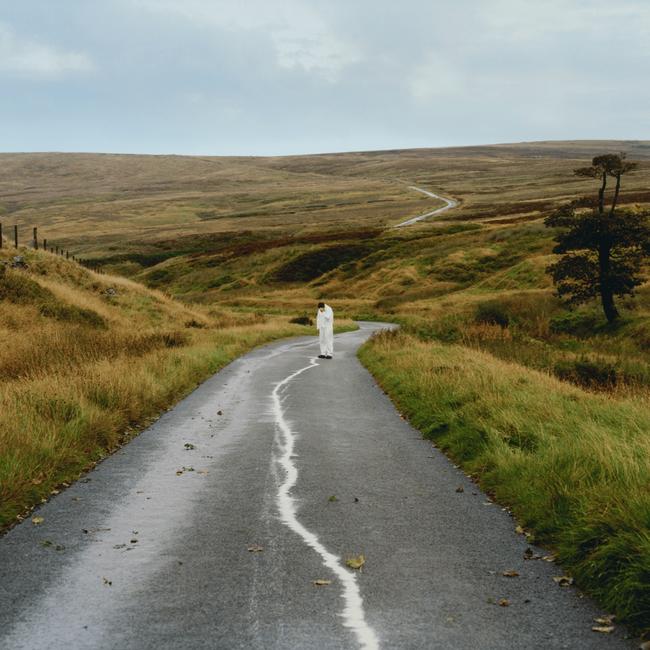
POP/NEO SOUL
The Loop
Jordan Rakei
Ninja Tune/Inertia
Kiwi-born producer, vocalist and instrumentalist Jordan Rakei spent much of his youth in Australia, but truly found his stride when he moved to London and fell in with the likes of conscious hip-hop and soul artists like Tom Misch and Loyle Carner. Now signed to tastemaker label Ninja Tune and in a creative purple patch that has lasted nearly five years, Rakei’s latest album flexes his musical muscles in all directions, from the gospel-flecked funk on Trust — which pulls in a choir and horn section — to showstopping ballad Hopes and Dreams, soaking in strings and dedicated to his newborn son. Rakei, whose mercurial voice once required the backing of a locked-in rhythm section before it could truly soar, now arrives untethered from expectation. In this sense, and across the record, he unlocks a level of classic pop musicianship that the better songs in his discography have always threatened but never quite achieved. On Everything Everything, he channels the likes of Sting and Marvin Gaye, while still retaining enough groove for the heads.
Jonathan Seidler
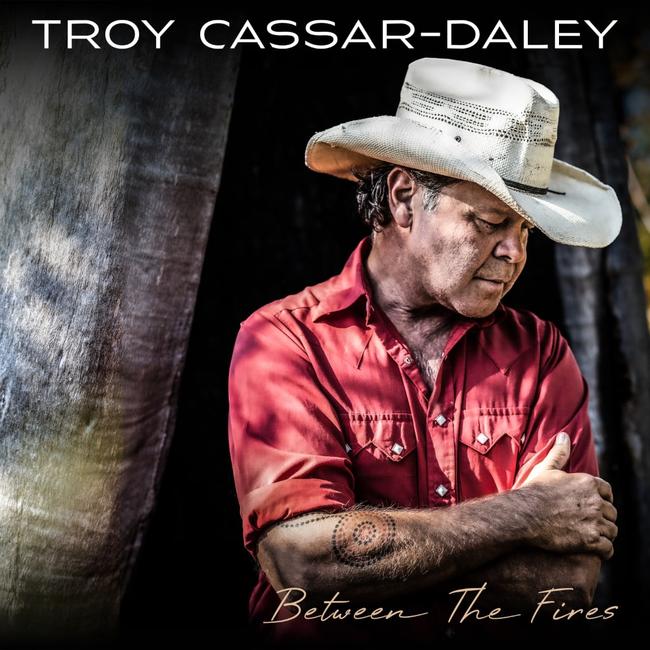
COUNTRY
Between the Fires
Troy Cassar-Daley
Tarampa Music/Sony
Everyone worth their salt in Australian music will speak the highest praise of Troy Cassar-Daley. The Gumbaynggirr/Bundjalung singer-songwriter has as many great yarns as he does Golden Guitar Awards, and has spent some 35 years as one of Australia’s most beloved, trusted storytellers. There’s an evergreen quality to the best moments on Between The Fires, his 14th album overall: songs that, while new to his extensive catalogue, come with the feeling like he’s been playing them for decades. Some Days has a rustic folksy feel, with warm pedal steel accentuating the steely finger-picked guitar and Cassar-Daley’s mournful vocals, while Old Road Home perfectly paints a picture of outback Australia as the veteran retraces roots. While you obviously wouldn’t turn down 70 minutes of Cassar-Daley performing live, 70 minutes of him on record is a different story – and Between The Fires, sadly, does not justify its length. Misfires, pardon the pun, include the blues-rock of This World Alone and the painfully slow seven-minute waltz of Congratulations. It’s nice Cassar-Daley’s back with new music, but the welcome verges dangerously on overstayed.
David James Young
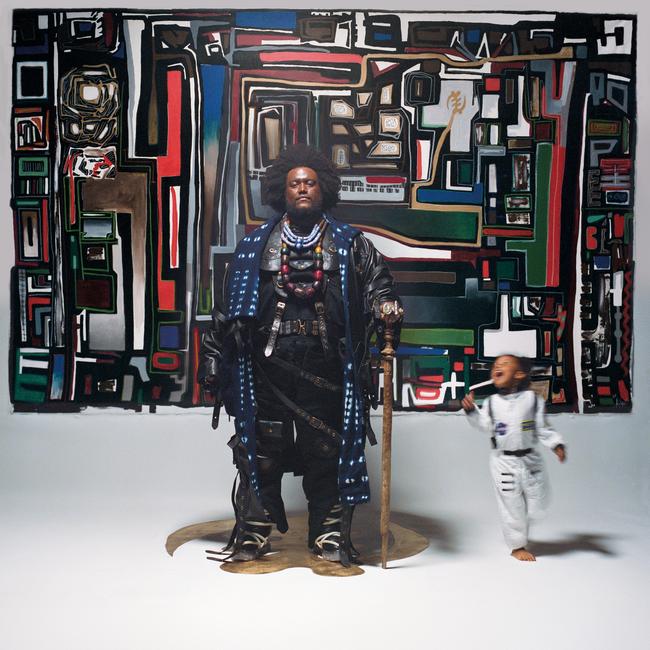
JAZZ
Fearless Movement
Kamasi Washington
XL/Remote Control Records
Fearless Movement is a powerful album that covers jazz, funk, soul, gospel, R&B, fusion and, now significantly, rap. Jazz purists should find much to like here. While Washington’s previous works, The Epic (a triple album, issued in 2015) and Heaven & Earth (a double album, 2018) were monumental, the new album, running to 86 minutes only, suggests that Washington is mellowing. Still, it’s as extravagant as the others. Most of Washington’s 12 compositions are full of grandeur, and played with such musical urgency, with thunderous climaxes, that one is obliged to pay attention. Still, there are contemplative moments throughout which are appealing. Improvisations from many excellent players, too numerous to list here, are always interesting even if they are often guilty of overplaying. In the case of Washington himself, consider his saxophone solos on the opening track Lesanu and the closing track Prologue. It’s difficult not to be uplifted by the sheer emotion expressed. In many ways Washington’s music is the apotheosis of African American fusion; it’s very hard to ignore.
Eric Myers
Album reviews for week of July 5 2024:
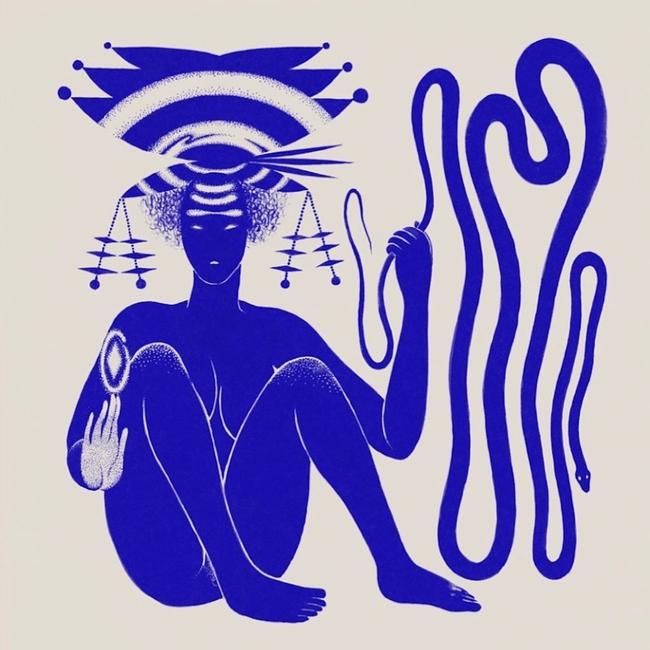
NEO-SOUL
Love Heart Cheat Code
Hiatus Kaiyote
Brainfeeder/Ninja Tune
★★★
Now in its 13th year, Hiatus Kaiyote’s distinctive blend of soul, R&B, funk and jazz has made it one of the more idiosyncratic exports of Australian music in the past decade — making A-list fans like Kendrick Lamar and Doja Cat in the process. With that firm stamp of identity, however, has come the increasing risk of a holding pattern from a creative standpoint — and thus the age-old catch-22. Do you, as a band, break from your established sound and face backlash for making music that doesn’t sound like you — or continue down the well-trodden path and face backlash for making music that sounds the same? Love Heart Cheat Code is the Melbourne-born quartet’s attempt at navigating this identity crisis, and naturally enough, it offers up mixed results. Fourth album centrepiece and lead single Everything’s Beautiful is a lush, soulful waltz that showcases frontwoman Nai Palm’s striking voice, which can seamlessly transition from sensual cooing to powerhouse belting. Dreamboat, too, is a blissful and stirring opener – not to mention one of the album’s big swings creatively, with its ornate orchestral arrangement guiding listeners in.
By contrast, however, the band absolutely butchers the landing on the final two tracks. Cinnamon Temple, while showing off Paul Bender’s impressive fretwork on the bass, is also a clattering, cloying mishmash of ideas that suffer from both a terrible mix and an uneasy, claustrophobic arrangement. Even more inexplicable is the band’s closer: a cover of the 1967 Jefferson Airplane classic White Rabbit. So adamant is the band about not doing things by the book that it throws the baby out with the bathwater to offer up seasick time signature changes, ugly distortion and blatant messiness. Sure, it sounds like a bad trip — mission accomplished — but it’s got all the listening appeal of Willy Wonka’s wondrous boat ride. The creative process is indeed a perilous one, and it’s to Hiatus Kaiyote’s credit that it’s not content with resting on its laurels when it had the easy way out. What’s worth taking away from Love Heart Cheat Code, however, is twofold: you should always throw everything you have at the wall, but not all of it’s going to stick.
David James Young
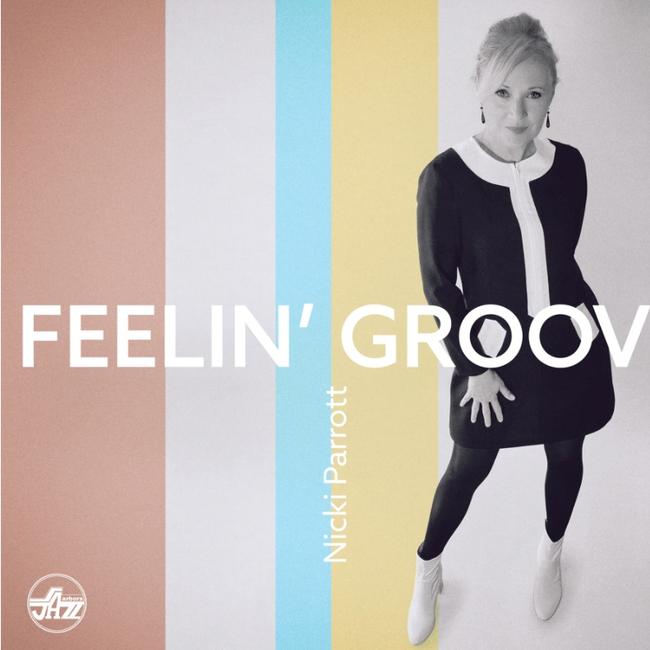
JAZZ
Feelin’ Groovy
Nicki Parrott
Arbors Records
Australian Nicki Parrott is an excellent double bass player who, in a fortuitous decision, supercharged her career by taking up singing. She arrived in New York in 1994 and commenced a weekly residency at the Iridium jazz club six years later, playing with the legendary guitarist Les Paul, who encouraged her to sing. Back in Australia after 30 years, she now enjoys success as a bass-playing vocalist. Her latest album Feelin’ Groovy features 12 popular songs from the 1960s, which she describes as “an era of peace, love and discovery”. Parrott has a sweet, very hip voice and, in the highly musical approach underlining her artistry, I detect the commendable discipline she developed through working with a procession of great American players over the years. She effortlessly carries the repertoire on this impressive album, backed by five immaculate northern NSW musicians. Highlights include lovely piano solos from Steve Russell, attractive double-tracked vocal harmonies by Parrott on some tunes, guest appearances by guitarist Jim Kelly and clever arrangements written by Andrew Robertson.
Eric Myers

JAZZ / EXPERIMENTAL
Empathogen
Willow
ThreeSixZero
At only 23, Willow Smith is dangerously young to already be onto her sixth LP. Perhaps her productivity is inspired by her famous movie star parents, but Smith — increasingly renowned for her technical proficiency as a musician, producer, writer and vocalist — has long since triumphed over whispers of nepotism. Her precociousness means the genres most people her age discovered by accident are already the ones inspiring the albums she writes. Empathogen takes its aural cues from the recent prog-jazz revival; it’s densely layered and complex, driven by spiralling modal piano and frenetic drums. It’s also a full tilt-shift from her last record, which enlisted Travis Barker to help mine the vaults of emo and pop-punk. Big Feelings lurches between time signatures, while opener Home evokes the ’90s fusion of pioneering artists like Angelique Kidjo. As well, Smith’s formidable voice ties together some of the looser instrumental strands on a record that strives to be many things, but is certainly never boring.
Jonathan Seidler
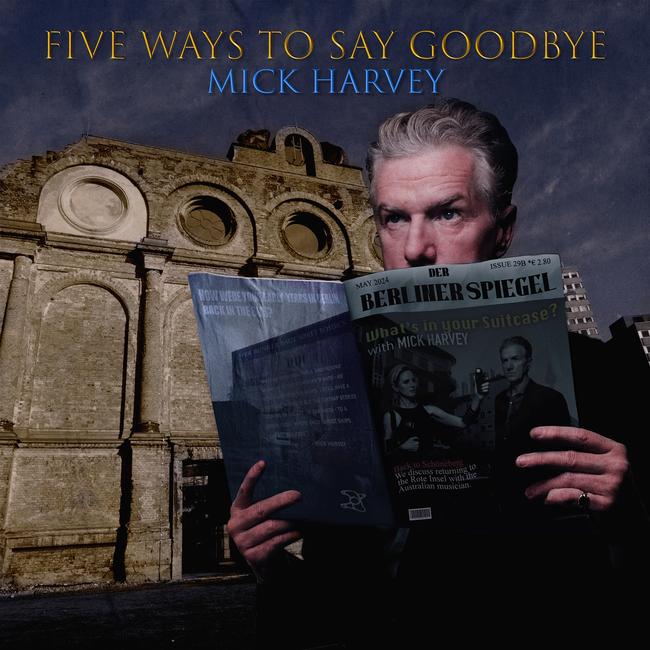
FOLK/ALTERNATIVE
Five Ways to Say Goodbye
Mick Harvey
Mute
Mick Harvey is no stranger to interpretation, having translated four volumes of Serge Gainsbourg material to English. His new solo album sees the former member of both The Birthday Party and The Bad Seeds balance originals with subtle reworkings of others’ songs. The connecting theme, as the title suggests, is saying farewell against the inevitable passage of time. Several tracks benefit from moving string arrangements, with Demolition adding distorted, overlapping vocals to the tune’s increasingly askew lilt. Harvey has always displayed superb taste, and here he dips into source material by the late David McComb (The Triffids, The Blackeyed Susans), The Saints, Lee Hazlewood (in collaboration with Mexican musician Amanda Acevedo) and Loene Carmen, whose lyrics from Nashville High give the album its title. These elegiac slow-burns require some patience, but Harvey finishes especially well by reframing Marlene Dietrich’s A Suitcase in Berlin with a corroded undercurrent and then the unplugged version of Neil Young’s oft-covered live staple Like a Hurricane as a windswept piano ballad that highlights his impressively poised vocals.
Doug Wallen
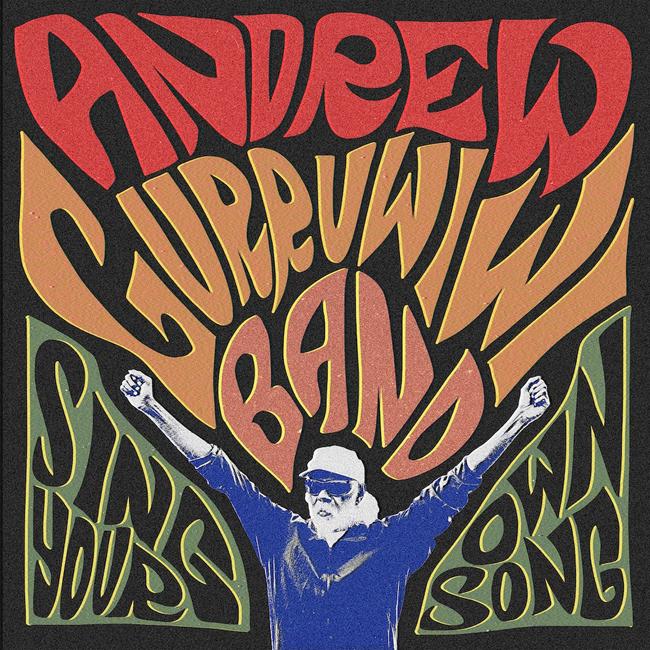
ABORIGINAL FUNK
Sing Your Own Song
Andrew Gurruwiwi Band
Independent
The small community of Yirrkala on the remote East Arnhem Land coast has spawned some of the most dynamic bands and albums in the history of modern Aboriginal music, from 1990s chart-toppers Yothu Yindi to 2020-era surf-rockers King Stingray. Singing primarily in his native tongue, Andrew Gurruwiwi, a radio broadcaster and elder from Yirrkala, fronts the latest Yolngu-led outfit tipped to take Australia by storm. His group’s debut album is a veritable winter warmer, from whoa to go. Assisted by a cosmopolitan crew comprising the brass section from Kiwi dub fusionists Sub-Tribe, West Africa-raised guitar whiz Moussa Diakite, American violinist QVLN and Yothu Yindi bassist Stu Kellaway, Gurruwiwi and his co-producers, multi-instrumentalist Julian Belbachir and guitarist Andrew Grimes, have fashioned a dynamic set based largely on ancient Yolngu traditions, but one that crackles with modernity. Adeptly arranged dance-inducing reggae rockers, funk and Afro-high life grooves and a catchy Latin influenced instrumental crisscross in an eclectic and electric soundscape that’s epitomised by the irresistibly upbeat and joyful single Yaa Djamarrkuli.
Tony Hillier
Album reviews for week of June 28 2024:
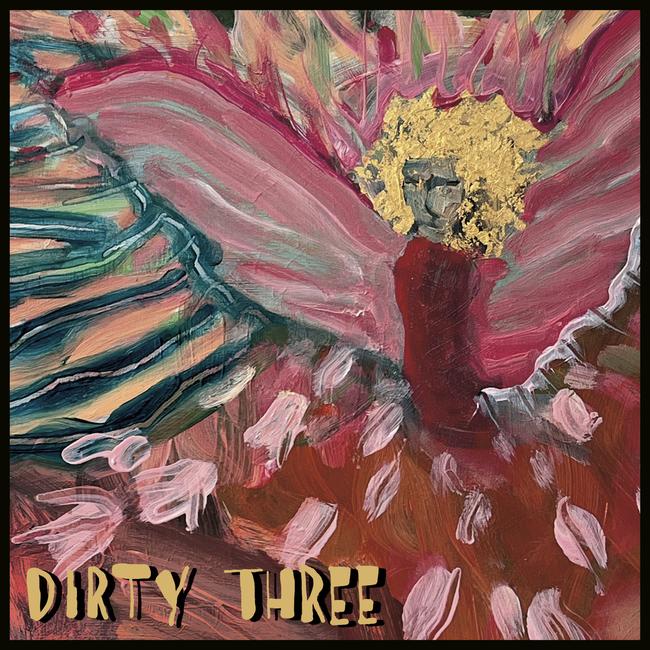
ROCK/EXPERIMENTAL
Love Changes Everything
Dirty Three
Anchor & Hope/Remote Control
Dirty Three’s first album in a dozen years begins with a sustained burn of guitar distortion before other elements emerge one by one. Such a gradual introduction feels fitting for an Australian trio who are so well known individually – hirsute violinist and long-time Nick Cave collaborator Warren Ellis, in-demand drummer-for-hire Jim White and guitarist/painter Mick Turner, whose art graces every Dirty Three album – but haven’t recorded together in more than a decade. For that reason, Love Changes Everything can’t help but sound somewhat retrospective, as if tilling familiar soil from across a fertile discography. And while it’s true that the album hits upon all of the instrumental act’s sweeping, career-long strengths, it also packs some of its most striking contrasts to date. Unfolding in six parts demarcated simply by Roman numerals, album No.9 again encourages Ellis to pore over his expressive violin or viola against Turner’s searching or gnashing guitar lines and White’s alternately clattering and calming drums. Yet it’s a marvel to hear how naturally the three coax their collective approach through ongoing flux, such as when the growing burliness of the first track gives way to a ghostly, piano-dappled wander through vaporous synth tones. The third track invites in more delicate violin picking near its finish, while the fourth dwells on a near-ambient patch of diffusion. Then, as the trio slowly starts flirting with the crescendo state it inhabits so well, the reward is palpable indeed.
Everything feels roughed up and refreshed, as if shaking off the studio cobwebs of a decade-plus inspired a more spontaneous bent overall. The sixth and final track is the longest at 10 minutes, making for a gorgeous culmination. Its close interweaving of motifs borders on disorienting at the start, but the piano and drums guide us through the seesawing violin loop. Ellis has said that the album took only five days to record but was mixed over the course of a year. One can imagine the latter process being hindered by hectic schedules, but when hearing that last track we get a real feeling of just how tricky it is to balance the sounds at play here. As distinctive motifs unfold in the background and foreground at once, it highlights all the subtle hard work that goes into preserving the trio’s eternal sense of adventure and play. As the band has been recently wowing crowds on a national tour – also the first in a dozen years – there’s an increasing sense that this uniquely Australian ensemble might vanish back into the ether as easily as it materialises when the stars align just so. That, of course, only makes it feel that much more rare and special.
Doug Wallen
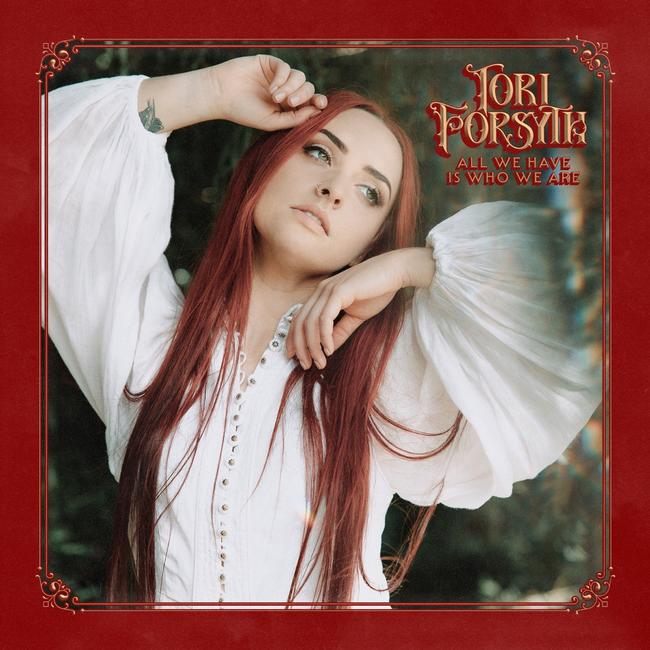
ALT-COUNTRY
All We Have is Who We Are
Tori Forsyth
Island
On her third studio album, Queensland singer-songwriter Tori Forsyth finds herself in a state of reflection – craving closure, resolve and even an escape. It’s raw-nerve emotion, all of which comes barrelling out in the album’s opener and quasi-title track All We Have. Over rollicking drums and persistent strumming, Forsyth takes charge with what may well be the best song she’s written thus far in her career. Its sharpness admittedly proves a double-edged sword, as the song threatens to overshadow the rest of the album entirely. Thankfully, however, Forsyth has enough wherewithal and elbow grease as a songwriter to navigate a series of peaks and valleys – even if she is firmly slotted within the alt-country/country-folk wheelhouse and is given little wriggle room. Separate cameos from the one-time royal couple of Australian country, Kasey Chambers and Shane Nicholson, accentuate Good Enough and Sometimes respectively. Elsewhere, Forsyth channels mid-period Fleetwood Mac on standout cut Alchemist and brings a Southern Gothic flair to Made Your Bed. As it turns out, all Forsyth has is more than enough.
David James Young

ROCK/FOLK
Real Life
Jess Locke
Dot Dash
Jess Locke has always nurtured a dark streak in her songwriting, and the Melbourne musician’s fourth album reliably folds bleak commentary into casually catchy alt-rock. The rumbling opener Everybody’s Going to the Same Place muses about death being the great leveller, while Red Moon Rising is about the acceptance of endings big and small. It helps that Locke’s vocals are so winningly wry, neatly handling such thorny themes as the climate-ravaging egos of the ultra-wealthy (Rocket to Ride) and the futility of trying to leave a lasting impact (lead single Uncomfortably Happy). And on the slow piano number Killed a Fly, she likens the titular slaying to confronting a wild beast in order to eat. But as great as Locke is at compacting hard truths and complicated anxieties into appealing shorthand, sometimes these songs feel too fleeting to fully satisfy. None of them cross the four-minute mark, and given the album’s anticlimactic finish with The Place simply trailing off at its leisure, one wishes Locke would stick around for longer.
Doug Wallen
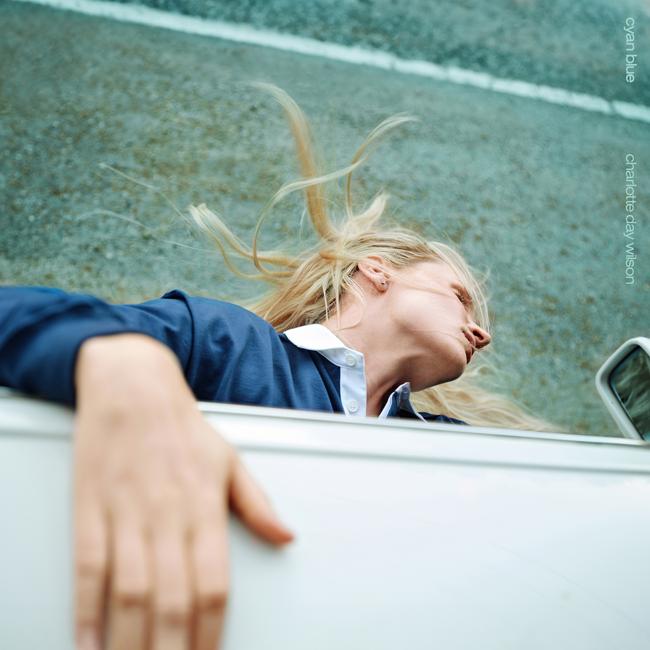
R&B
Cyan Blue
Charlotte Day Wilson
XL Recordings
Canadian R&B singer-songwriter Charlotte Day Wilson sits at the fringes of electronica, jazz and neo-soul, able to cross into these varied spaces thanks to her instantly recognisable voice. Blessed with both a wrenching soprano and deep alto register that often seems like a male baritone, one that she further obscures through the use of engineering wizardry, Wilson’s tone is highly sought after by collaborators from James Blake to Kaytranada. On her own songs, this makes for seriously arresting balladry, and Cyan Blue is no different. The best songs here, like New Day, place Wilson above muted, rolling piano, giving the entire space over to her cavernous melody, cleverly employing hip-hop intonation as it plays around the meter, while I Don’t Love You soars over a disembodied 6/8 shuffle amid ghostly samples. Elsewhere, Canopy brings a hypnotic guitar ostinato straight out of the 90s R&B playbook, and Dovetail leans back into the effortless funk of Jill Scott and Indie Arie. The only misstep is a pretty but unremarkable cover of Over the Rainbow — an unnecessary diversion on an otherwise sublime album.
Jonathan Seidler
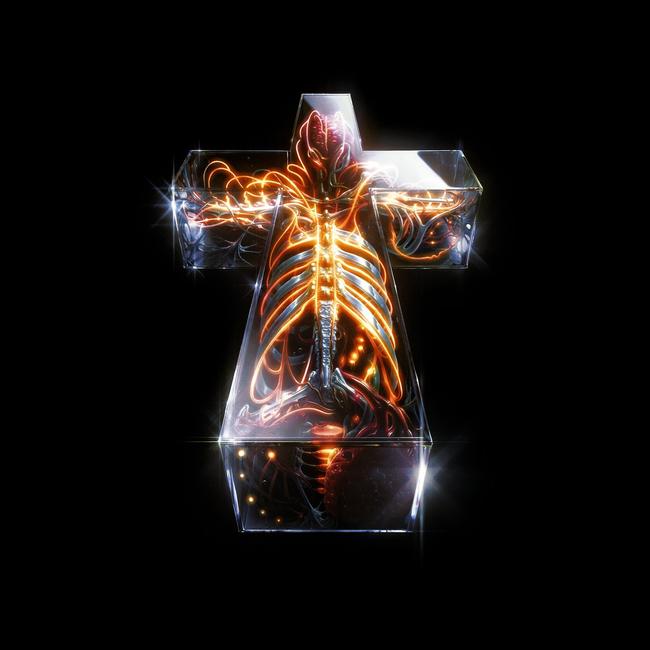
ELECTRONIC
Hyperdrama
Justice
Ed Banger Records/Because Music/Virgin
Routinely referenced alongside compatriots Daft Punk, Air and Cassius as nurturers of the French Touch sound, Justice remains a festival main stage darling on the back of evergreen early hits and an enduring leather-clad, cigarette-smoking, in-your-face aesthetic. On the duo’s fourth album and follow up to 2016’s Woman, Parisiennes Gaspard Auge and Xavier de Rosnay again indulge their penchant for genre mashups, inducing nostalgia via on-brand, snarling, synth-heavy dancefloor bombs, while linking with high-profile guests to serve up more accessible fare. For the most part, it works. One Night/All Night, which transitions from dark electronica to shiny disco atop a soaring vocal from Tame Impala’s Kevin Parker, deserves the hype it has generated. Similarly, the dressed-down funk of Dear Alan evokes the finest of French Touch, while the menacing Incognito wouldn’t feel out of place on their 2007 debut, Cross. Some mid-album tunes fail to launch, though; much better is closer The End, which demonstrates the Grammy-winning duo’s production restraint in ensuring Thundercat’s falsetto can soar above a piercing synth line and crashing percussion.
Tim McNamara


To join the conversation, please log in. Don't have an account? Register
Join the conversation, you are commenting as Logout